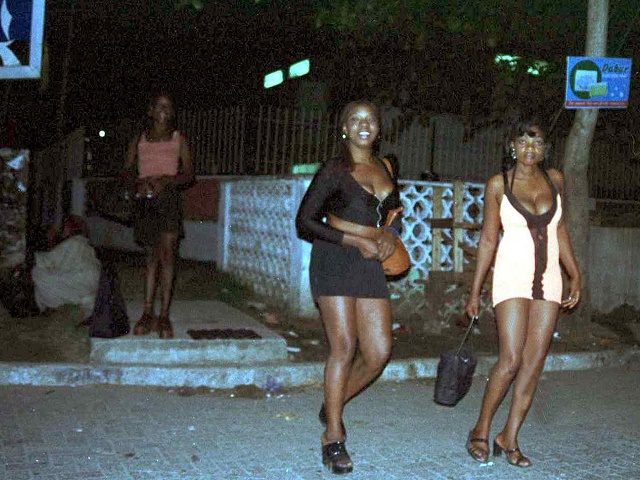The flood of African migrants into Italy has brought more harm than meets the eye, including “thousands of Nigerian women” forced into prostitution by well-organized Nigerian mafias, according to a series of recent reports.
The year 2016 has seen a new record in Italian immigration, with over 172,000 mostly African migrants arriving over the first eleven months of the year. Of these, the largest number (21 percent) are from Nigeria, lured into making the dangerous journey by a vigorous promotion campaign promising benefits and opportunities, as well as a free shuttle service provided by the Italian Coast Guard and a number of NGOs.
While most of the African migrants arriving in Italy are young men, a much higher percentage of the Nigerians are women. Currently, one out of every two prostitutes in Italy is Nigerian.
Arinze Orakwe, an official of the Nigerian anti-trafficking organization NAPTIP, fighting against the traffickers is an uphill battle, in part because of public opinion and propaganda about life in Europe. “Everyone thinks that the streets of Europe are paved with gold,” he said.
The human traffickers organizing the exodus from Africa into Italy include bands of Nigerian mafia gangs who force unsuspecting migrants into working for them as street beggars or prostitutes once they arrive in Italy.
One 24-year-old Nigerian woman named Gloria Erobaga recounted the harrowing experience of forced prostitution on Italian streets, after she had been promised “honest work” by the mafia traffickers who arranged her passage to Italy.
“They would continually check up on us to collect our money and they killed the girls who didn’t pay,” she said. “I know of Nigerian women in Italy who were killed, cut up and thrown into black garbage bags, like trash,” she added.
According to reports in the Italian media, “Nigerian traffickers are exploiting Europe’s migrant crisis to take girls to Libya and then across the Mediterranean into Italy.” In the past two years more than 12,000 girls and young women have arrived in Italy—six times as many as in the preceding two years. Of these, four out of five have wound up in prostitution.
Before organizing their journey through Libyan contacts, traffickers have the girls sign a contract to finance their trip, imposing debts of up to $30,000, which can only be paid back after years of working.
Many of the young women are taken to a priest of Voodoo, who conducts rituals called juju that supposedly bind them spiritually to their traffickers and insure the payment of the debt. These rites instill terror in their victims, convinced that they or their loved ones could fall ill or die if they were to disobey the traffickers, go to the police or fail to pay their debts.
Once in Italy, the women are placed together in common dwellings and given a “madam” to coordinate their work as prostitutes.
Fabio Sorgoni, an official with a charity that helps prostitutes in Italy, said Italian men are attracted by the youth and low price of the women and often don’t realize they are sex slaves.
Appealing to men who pay Nigerians for sex, Sorgoni said: “If you go to a prostitute, try to understand if they are a minor and whether they are doing this work of their own free will.”
Meanwhile, African immigrants continue to stream into Italy by the hundreds and thousands every day. They are usually picked up several miles off the coast of Libya by waiting “rescue” vessels of the Italian Coast Guard or a number of organizations that assist migrants, who then take them across the Strait of Sicily to Italian ports.
What many well-meaning NGOs and pro-immigration groups don’t realize, is that by assisting migrants in their passage from North Africa to Italy, they are also abetting organized crime and condemning thousands of women to forced prostitution.
Anna, a woman forced into prostitution after being told by traffickers she would pick fruit in Italy, wishes she had never made it here.
“My message to girls back in Nigeria is, ‘Don’t come,’” she said.
Follow Thomas D. Williams on Twitter Follow @tdwilliamsrome

COMMENTS
Please let us know if you're having issues with commenting.